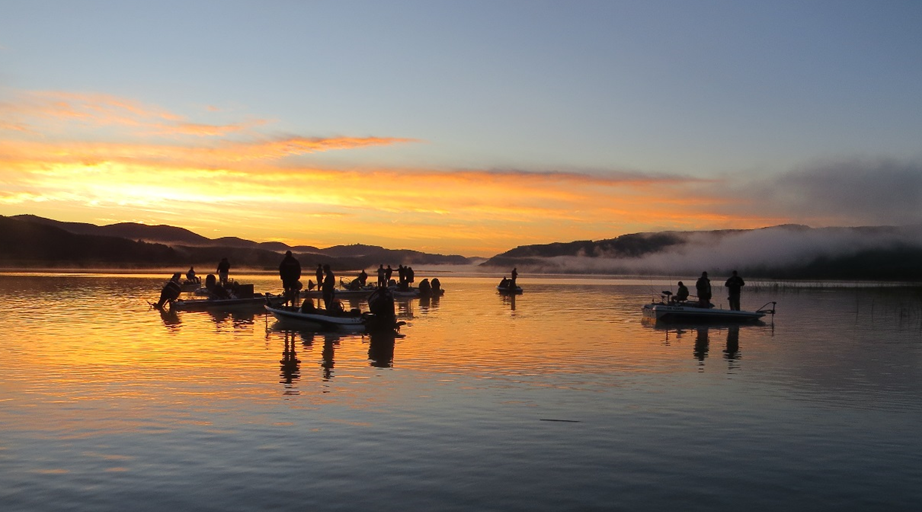19 October 2015 | By Olaf Weyl
Information on how invasive fish species enter and spread in aquatic ecosystems of southern Africa is critical for managing such invasions. This is particularly important for alien sport fishes that are “conflict species” because they have economic and recreational value. Black bass (a collective term for species belonging to the genus Micropterus such as largemouth bass M. salmoides and smallmouth bass M. dolomieu) are good examples of “conflict species” because they are popular angling species, but also have impacts on native ecosystems. To manage such conflicts, South African legislation set aside activities, including catch and release angling, in areas where black bass is already established.
Olaf Weyl (C·I·B and South African Institute for Aquatic Biodiversity) together with John Hargrove and Mike Allen (University of Florida) and Neil Deacon (South African Institute for Aquatic Biodiversity) worked together with the South African Bass Angling Association (SABAA), the Zimbabwe National Bass Federation (ZNBF) and the Bass Anglers Sportsman Society (BASS) in the United States to evaluate the invasion status of black bass in southern Africa. The team made use of data from 14,890 days of tournament fishing (11,045 days from South Africa and Zimbabwe; 3,845 days from the United States).They mapped the distribution of black bass using records from tournaments in Botswana, Mozambique, Namibia, South Africa, and Zimbabwe. The team compared (1) catch rates (indicator of abundance) and (2) fish weights (indication of fish size) from native and non-native ranges.
The study found no significant differences between catch rates, average daily bag weight, or the average fish weight between countries. “That means bass populations in southern Africa reached comparable sizes and numbers relative to the waters where they are native,” says Olaf Weyl.
He adds, “Given the minimal cost associated with data collection (i.e. tournament organisers collect records); the standardised nature of tournaments, and consistent bias (i.e. angling for the biggest fish in a population), the use of recreational angler data can be a novel approach for determining the status and distribution of invasive sport fish.”
Read the paper
For more information, contact Olaf Weyl at O.Weyl@saiab.ac.za


